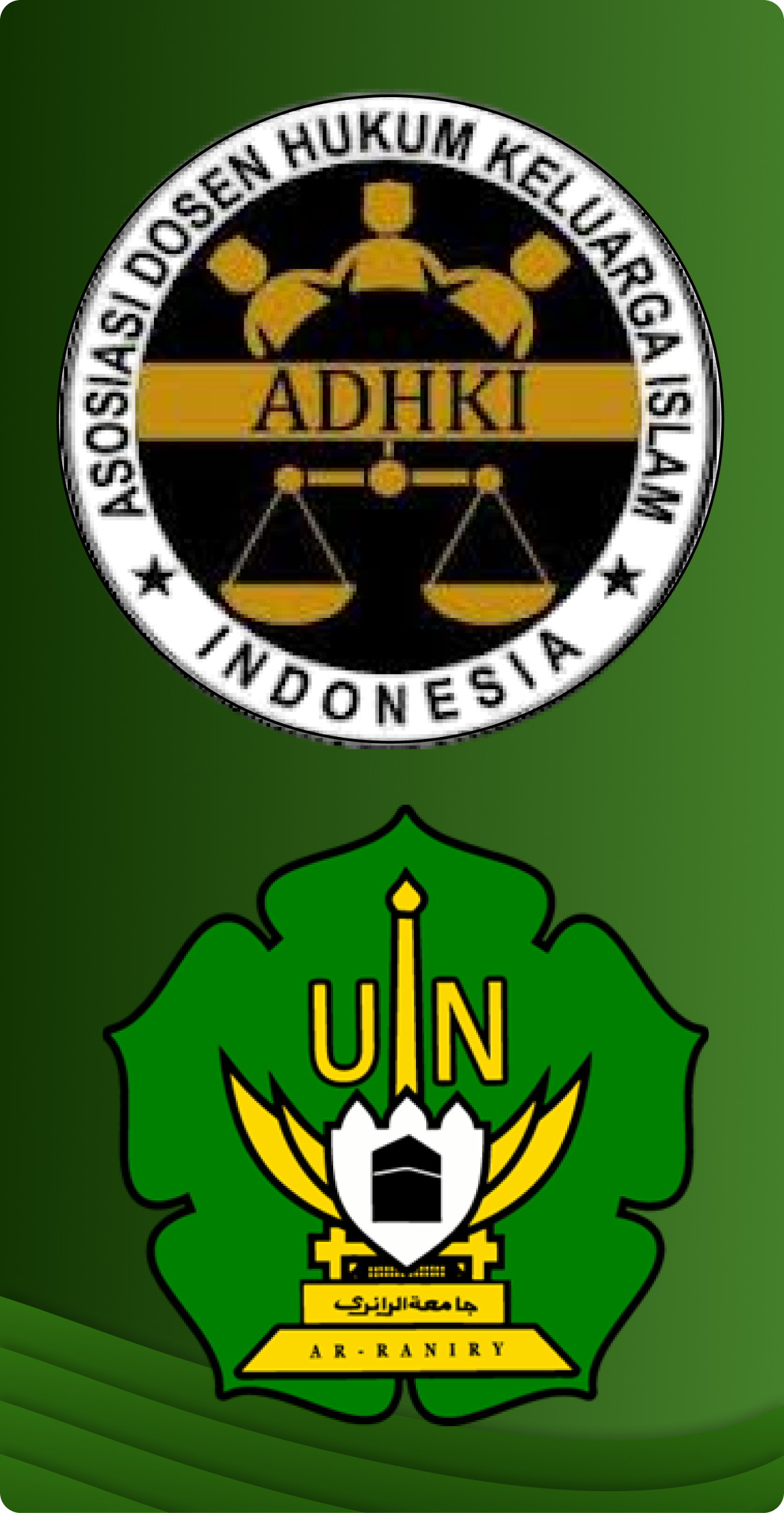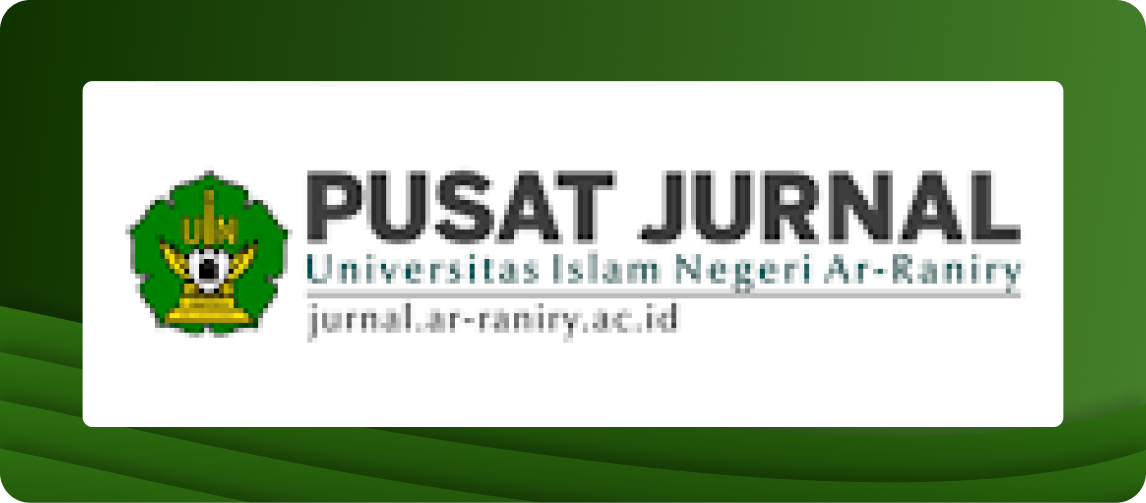The Urgency of the Islamic Law and Contemporary Societal Challenges
The Flexibility of al-Maslahah in Determining the Hierarchy of Maqāṣid al-Sharīʿah
DOI:
https://doi.org/10.22373/pxydd884Keywords:
Elasticity of Maslahah, Hierarchy Determination, Maqāṣid al-Sharīʿah, Islamic Law, Contemporary ContextAbstract
This study explores the elasticity of the concept of al-maslahah in determining the hierarchy of maqāṣid al-sharīʿah, a critical issue in the development of contemporary Islamic legal thought. The central research question addresses how al-maslahah, as a foundational legal principle, can guide the prioritization within the maqāṣid framework and how its flexibility influences the formulation of the Islamic law in the modern era. This study positions al-maslahah as a key element in the methodology of legal istinbāṭ, facilitating the classification of legal objectives into three primary categories: ḍarūriyyāt (necessities), ḥājiyyāt (needs), and taḥsīniyyāt (embellishments). Employing a normative legal method and a maslahah-based approach, the research conducts a comparative analysis of classical and contemporary scholarly perspectives. The data is drawn from core Islamic legal sources the Qur’an, Hadith, and scholarly writings both supporting and critiquing the concept sourced from authoritative books and peer-reviewed journal articles. The findings reveal that while some variation exists in the formulation of the maqāṣid hierarchy, the majority of scholars continue to adhere to the classical structure established by Imam al-Ghazālī, encompassing five essential protections: religion (ḥifẓ al-dīn), life (ḥifẓ al-nafs), intellect (ḥifẓ al-ʿaql), lineage (ḥifẓ al-nasl), and property (ḥifẓ al-māl). However, contemporary scholars such as Jasser Auda and Ali Jumʿah advocate for a more dynamic and contextualized interpretation of this hierarchy to better address present-day challenges. This study underscores that the elasticity of al-maslahah plays a vital role in preserving the relevance of maqāṣid al-sharīʿah, while also stressing the need for clear boundaries to prevent the erosion of sharia’s core principles. In this context, the research affirms the critical role of Islamic law in responding to contemporary societal challenges.
References
Journal and Books
’Asyur, Muhammad Thahir bin. Maqasid Al-Syariah Al-Islamiyah. Kairo: Dar al-Salam, 2020.
’Athiyyah, Jamal al-Din. Nahwa Taf’il Maqasid Al-Syari’ah. Damaskus: Dar al-Fikr, 2001.
Abdi Wijaya, Achmad Musyahid Idrus, Tahani Asri Maulidah, Mulham Jaki Asti, and Nurjannah Nurjannah. “The Implementation of E-Commerce Consumer Option Rights (Khiyar) in Realizing Transaction Justice: A Study of Maqasid Al-Shariah.” Al-Manahij: Jurnal Kajian Hukum Islam 17, no. 1 (2023. https://doi.org/10.24090/mnh.v17i1.7673.
Abdul Jalil, Abdul Jalil. “Maqashid Al-Syariah Al-Syathibi (Sebuah Upaya Untuk Menyingkap Tujuan Asasi Formulasi Hukum Islam).” AL-IHKAM: Jurnal Hukum & Pranata Sosial 6, no. 1 (2013). https://doi.org/10.19105/al-lhkam.v6i1.299.
Al-’Alwani, Taha Jabir. Maqasid Al-Syari’ah. Beirut: Dar al-Hadis, 2001.
Al-’Amidi, Ali bin Muhammad. Al-Ihkam Fi Ushul Al-Ahkam. Damaskus: Dar al-Fikr, 2020.
Al-Buthi, Muhammad Said Ramadhan. Zawabit Al-Maslahah Fi Al-Syari’ah Al-Islamiyyah. Damaskus: Dar al-Fikr, 2005.
Al-Qardhawi, Yusuf. Kaifa Nata’amal Ma’a Al-Qur`an Al-’Azim. Kairo: Dar al-Shuruq, 1999.
Al-Syathibi, Ibrahim Musa. Al-Muwafaqat Fi Ushul Al-Syari’ah. Kairo: Maktabah al-Tajariyah al-Kubra, 1998.
Amanatus Sholihah. “Buzzer: Politic’s Interest And Maslahah.” Politea : Jurnal Politik Islam 5, no. 2 (2023). https://doi.org/10.20414/politea.v5i2.5382.
Andiko, Toha, Zurifah Nurdin, and Efrinaldi Efrinaldi. “Implementation of Restorative Justice in a Customary Court in Rejang Lebong District, Bengkulu, Indonesia: A Maqāṣid Al-Sharī‘ah Review.” JURIS (Jurnal Ilmiah Syariah) 23, no. 1 (2024). https://doi.org/10.31958/juris.v23i1.12008.
Asa’ari, Asa’ari, Zufriani Zufriani, Arzam Arzam, and Doli Witro. “Urgensi Pemahaman Terhadap Maqashid Al-Syari’ah Dan Perubahan Sosial Dalam Istinbath Al-Ahkam.” De Jure: Jurnal Hukum Dan Syar’iah 13, no. 2 (2021). https://doi.org/10.18860/j-fsh.v13i2.13818.
Auda, Jasser. Maqasid Al-Syari’ah Wa Falsafah Li Tasyri’ Al-Islami. Jordania: Ma’had al-Fikr al-Islami, 2012.
Auladi, Akrom. “Kuasa Pengetahuan Masyarakat Dan Analisis Hirarki Maqâṣid Syarî’ah Terhadap Fatwa MUI Tentang Pencegahan Penyebaran Covid-19.” Syariati: Jurnal Studi Al-Qur’an Dan Hukum 6, no. 01 (2020). https://doi.org/10.32699/syariati.v6i01.1259.
Aziz, Jamal Abdul. “Abu Ishaq Ibrahim Ibn Musa Al-Syathibi Aand His Opinion On The Dichotomy Of Ibadat And Adat In Islamic Law.” AL-IHKAM: Jurnal Hukum & Pranata Sosial 10, no. 2 (2016). https://doi.org/10.19105/al-lhkam.v10i2.714.
Azni Azni, Muhammad Hafis, Asril Amirul Zakariah, Adi Harmanto, Miftahuddin Miftahuddin, M. Ihsan. “Pseudo-Maṣlaḥah and Epistemological Failure in Marriage Dispensation at Indonesian Religious Courts.” Jurnal Ilmiah Peuradeun 13, no. 2 (2025). https://doi.org/https://doi.org/10.26811/peuradeun.v13i2.2047.
Diatmoko, Tri, Absori Absori, Kelik Wardiono, Muh Nashirudin, and Arief Budiono. “Islamic Legal Policy on Ultra-Micro Enterprise Financing and Its Implementation from the Perspective of Maqāṣid Al-Sharī‘A.” Al-Ahkam 35, no. 1 (2025). https://doi.org/10.21580/ahkam.2025.35.1.25207.
Dusuki, Asyraf Wajdi, and Nurdianawati Irwani Abdullah. “Maqasid Al-Shari`ah, Maslahah, and Corporate Social Responsibility (2007).” American Journal of Islam and Society 41, no. 1 (2024). https://doi.org/10.35632/ajis.v41i1.3417.
Elfia, Elfia, Nurus Shalihin, Surwati Surwati, Yan Fajri, and Aulia Rahmat. “Institutionalizing Maqāsid Ḥifz Al-Naṣl within the Minangkabau Inheritance Framework.” Ijtihad : Jurnal Wacana Hukum Islam Dan Kemanusiaan 24, no. 2 (2024). https://doi.org/10.18326/ijtihad.v24i2.193-222.
Fakhruddin, Sudirman Hasan, Dwi Hidayatul Firdaus, and Hakmi Hidayat. “From Fiqh Al-Ibadat to Muamalat: Repositioning Zakat Management in Indonesia in the Perspective of Maqaşid Al-Shari’ah.” Samarah 8, no. 1 (2024). https://doi.org/10.22373/sjhk.v8i1.19637.
Halim, Ahmad Rasyidi, M. Fahmi Al Amruzi, and Jalaluddin. “Legal Formulation for Forced Marriage Prevention through the Decision of Wali Mujbir in Religious Courts and Its Relevance with Maqȧṣid Syari‘ah and Human Rights.” Mazahib Jurnal Pemikiran Hukum Islam 23, no. 1 (2024): 79–116. https://doi.org/10.21093/mj.v23i1.6189.
Harun, Muhammad, and Muhammad Torik. “Korelasi Filsafat Nilai Tentang Kebaikan Dengan Al-Maslahah.” Nurani 16, no. 2 (2016): 85–98.
Ifandy, Teguh, and Idaul Hasanah. “Maslahat (Benefits) in Fiqh Awlāwiyāt: A Comparison between Yūsuf Al-Qarādhawī’s View and Abdus Salam Alī Al-Karbulī’s.” Al-’Adalah 21, no. 1 (2024): 1. https://doi.org/10.24042/adalah.v21i1.21316.
Krismiyarsi Krismiyarsi, Rayno Dwi Adityo. “The Urgency of Community Service Imposed as Punishment on Juvenile Delinquents: A Study of Al- Shatibi’s Maqhasid Al-Syariah Concept.” De Jure: Jurnal Hukum Dan Syar’iah 17, no. 1 (2025). https://doi.org/https://doi.org/10.18860/j-fsh.v17i1.31246.
Mohamed, Mohd. Faisal, Mualimin Mochammad Sahid, and Mohamad Zaharuddin Zakaria. “Rukun-Rukun Al-Bay’ Dan Al-Ijarah Dalam Kitab Sullam Al-Mubtadi Karangan Syeikh Daud Al-Fatani : Analisis Dari Perspektif Maqasid Al-Syariah = Principles of Al-Bay’ and Al-Ijarah in the Book Sullam Al-Mubtadi Written by Syeikh Daud Al-Fatani : An Analysis within the Perspective of Maqasid Al-Syariah.” Malaysian Journal of Syariah and Law 6 (2017). https://doi.org/10.12816/0051374.
Mufidah, Mufidah, Hartiwiningsih Hartiwiningsih, Isharyanto Isharyanto, and Musa Wardi. “Islamic Law and the Blasphemy Debate in Contemporary Indonesia.” AHKAM : Jurnal Ilmu Syariah 24, no. 2 (2024). https://doi.org/10.15408/ajis.v24i2.41287.
Muhaimin, Muhaimin. “The Interrelation between Islamic Law and Regional Regulations in Jember (Examining the Maqāṣid Al-Sharī‘at-Based Reasoning in Istinbāṭ Al-Ahkām).” AHKAM : Jurnal Ilmu Syariah 20, no. 2 (2020). https://doi.org/10.15408/ajis.v20i2.18330.
Mujiburrahman, Mujiburrahman, Teuku Zulfikar, Shukri Ahmad, Hasnul Arifin Melayu, and Jasafat Jasafat. “The State Intervention in the Islamic Education in Aceh: Threats or Opportunities?” Jurnal Ilmiah Peuradeun 12, no. 2 (2024). https://doi.org/10.26811/peuradeun.v12i2.1349.
Mukri, Moh., Agus Hermanto, Hanif Hanif, Is Susanto, and Rochmad Rochmad. “The Implementation of the Maslahah Principle in Cultivating Religious Moderation in the State Islamic Universities.” Al-’Adalah 21, no. 2 (2024). https://doi.org/10.24042/adalah.v21i2.23953.
Nasrullah Kartika MR, Galuh, and Hasni Noor. “Konsep Maqashid Al-Syari’ah Dalam Menentukan Hukum Islam (Perspektif Al-Syatibi Dan Jasser Auda).” Al Iqtishadiyah Jurnal Ekonomi Syariah Dan Hukum Ekonomi Syariah 1, no. 1 (2014). https://doi.org/10.31602/iqt.v1i1.136.
Nawawi, Maimun. “Konsep Mashlahah Perspektif Muhammad Sa’id Ramadhan Al-Buthi.” AL-IHKAM: Jurnal Hukum & Pranata Sosial 5, no. 1 (2013). https://doi.org/10.19105/al-lhkam.v5i1.280.
Noor, Salafuddin, Ahmadi Hasan, and Nuril Khasyi’in. “Review of Political Theory of Islamic Law Abul ’Ala Al Maududy Positive Perspective of the Political System of Indonesian Islamic Law.” Syariah: Jurnal Hukum Dan Pemikiran 23, no. 1 (2023). https://doi.org/10.18592/sjhp.v23i1.9626.
Norma Siamtina, Desi, Muhammad Chairul Huda, Sukron Ma’mun, and Nastangin Nastangin. “The Legal System of the All-You-Can-Eat Ticket System at Tlogo Argo-Tourism, Indonesia: A Maṣlaḥah Al-Mursalah Perspective.” JIL: Journal of Islamic Law 4, no. 1 (2023). https://doi.org/10.24260/jil.v4i1.1150.
Omar, Nizaita, and Zulkifly Muda. “The Application of the Rule of Istihsan Bi Al-Maslahah (Juristic Preference by Interest): A Practical Approach on Some Medical Treatment.” International Journal of Academic Research in Business and Social Sciences 7, no. 5 (2017). https://doi.org/10.6007/ijarbss/v7-i5/2975.
Purnоmо, Agus, Nоr Salam, Mukhammad Zamzami, and Abu Bakar. “Dimensions Maqāsid Al-Sharī’ah and Human Rights in The Constitutional Court’s Decision on Marriage Age Difference in Indonesia.” Samarah 7, no. 3 (2023). https://doi.org/10.22373/sjhk.v7i3.13283.
Rahman, Muhammad Aulia, Roibin Roibin, and Nasrulloh Nasrulloh. “Dayak Ngaju Customary Fines in Pre-Marriage Agreement to Minimize Divorce in The Perspective of Maslahah Mursalah Ramadhan Al-Buthi.” El-Mashlahah 13, no. 1 (2023). https://doi.org/10.23971/el-mashlahah.v13i1.5623.
Rasyid, Arbanur, Jarudin Jarudin, Idris Saleh, and Rayendriani Fahmei Lubis. “Dynamics of Childless Marriage Through the Lens of Maqasid Al-Shari’a.” Jurnal Ilmiah Peuradeun 12, no. 2 (2024). https://doi.org/10.26811/peuradeun.v12i2.1182.
Rozi, Masykur. “Memetakan Skala Prioritas Kebijakan Penanganan Pandemi Covid-19 Perspektif Maqāṣid Al-Syarī’ah: Analisis Terhadap Peraturan Perundang-Undangan Di Indonesia.” JIL: Journal of Islamic Law 2, no. 1 (2021). https://doi.org/10.24260/jil.v2i1.155.
Suparno Suparno, Rusli Rusli, Ia Hidarya. “A New Restorative Justice Paradigm in the Sociology of Islamic Law in Indonesia: Nahdlatul Ulama and Muhammadiyah’s Responses to Corruption Cases.” Syariah: Jurnal Hukum Dan Pemikiran 24, no. 2 (2025). https://doi.org/https://doi.org/10.18592/sjhp.v24i2.16221.
Tahir, Tarmizi, and Syeikh Hasan Abdel Hamid. “Maqasid Al-Syari’ah Transformation in Law Implementation for Humanity.” International Journal Ihya’ ’Ulum Al-Din 26, no. 1 (2024). https://doi.org/10.21580/ihya.26.1.20248.
Taufiqurohman, Taufiqurohman, and Nelli Fauziah. “The Evaluation of Maqāṣid Asy-Syarī’ah on Discourses of the Islamic Family Law.” El-Usrah: Jurnal Hukum Keluarga 6, no. 1 (2023). https://doi.org/10.22373/ujhk.v6i1.13035.
Thabrani, Abdul Mukti. “Pengembangan Fiqh Al-‘Ilmiyah Melalui Pendekatan Mashlahah Dan Tajdid.” AL-IHKAM: Jurnal Hukum & Pranata Sosial 6, no. 2 (2013). https://doi.org/10.19105/al-lhkam.v6i2.308.
Ulya, Nanda Himmatul. “Konsep Maslahat Dalam Pandangan Sa’id Ramadha Al-Buthi.” Al-Maslahah 15, no. 2 (2019).
Wardi, Moch Cholid, Abd. A’la, and Sri Nurhayati. “Contextualization Of Al-Maqasid Al-Kulliyat To The Individual, Family, Society And Humanity’s Aspects: An Analysis On Jamaluddin Athiyah’s Perspectives.” Malaysian Journal of Syariah and Law 11, no. 1 (2023). https://doi.org/10.33102/mjsl.vol11no1.389.
Wicaksono, Syafril, M. Khoirul Hadi Al-Asy’ari, Elisa Dourothun Nafis El-Adibah, and Iffahasanah Iffahasanah. “Maqashid Sharia Progressive: Anatomical and Transformational of Halal Institutions in UIN KHAS Jember.” El-Mashlahah 13, no. 2 (2023). https://doi.org/10.23971/el-mashlahah.v13i2.7370.
Yani, Ahmad, and Megawati Barthos. “Transforming Islamic Law in Indonesia from a Legal Political Perspective.” Al-Ahkam 30, no. 2 (2020). https://doi.org/10.21580/ahkam.2020.30.2.6333.
Yusida Fitriyati, Duski Ibrahim, Firman Muntaqo, KN Shofyan Hasan. “Justice in Religious Court Decisions through the Lens of Maqashid Al-Shariah.” Nurani: Jurnal Kajian Syari’ah Dan Masyarakat 25, no. 1 (2025). https://doi.org/https://doi.org/10.19109/nurani.v25i1.27133.
Zabidi, Ahmad Zayyaduz. “Paradigma Utilitarianistik Dalam Isthinbath Hukum Islam.” AL-IHKAM: Jurnal Hukum & Pranata Sosial 7, no. 2 (2014). https://doi.org/10.19105/al-lhkam.v7i2.335.
Zayyadi, Ahmad, Ridwan, Arif Hidayat, Ubaidillah, and Mowafg Abrahem Masuwd. “Understanding of Legal Reform on Sociology of Islamic Law: Its Relevance to Islamic Family Law in Indonesia.” Al-Manahij: Jurnal Kajian Hukum Islam 17, no. 2 (2023). https://doi.org/10.24090/mnh.v17i2.7584.
Zulkarnain, Habib Iman Nurdin Sholeh, and Ahmad Zaenul Muttaqin. “Local Wisdom in Sebambangan Traditional Marriage Practices: A Maqāṣid Sharī’ah Perspective.” Ijtihad : Jurnal Wacana Hukum Islam Dan Kemanusiaan 24, no. 1 (2024). https://doi.org/10.18326/ijtihad.v24i1.119-137.
Zumiyati Sanu Ibrahim, Suud Sarim Karimullah, Sulastri, Yavuz Gönan, and Hüseyin Okur. “Islamic Law and Human Rights: Convergence or Conflict?” Nurani: Jurnal Kajian Syari’ah Dan Masyarakat 24, no. 2 (2024). https://doi.org/10.19109/nurani.v24i2.19595.
Downloads
Published
Versions
- 2025-06-30 (3)
- 2025-06-30 (2)
- 2025-06-30 (1)
Issue
Section
License
Copyright (c) 2025 Zahrul Mubarrak, Imran Abu Bakar, Muslem Hamdani, Musrizal Musrizal, and Khalilullah Khalilullah

This work is licensed under a Creative Commons Attribution-ShareAlike 4.0 International License.
Authors who publish in El-Usrah: Jurnal Hukum Keluarga agree to the following terms:
Authors retain copyright and grant the journal right of first publication with the work simultaneously licensed Attribution-ShareAlike 4.0 International (CC BY-SA 4.0) that allows others to share the work with an acknowledgment of the work's authorship and initial publication in this journal.
Authors are able to enter into separate, additional contractual arrangements for the non-exclusive distribution of the journal's published version of the work (e.g., post it to an institutional repository or publish it in a book), with an acknowledgment of its initial publication in this journal.
Authors are permitted and encouraged to post their work online (e.g., in institutional repositories or on their website) prior to and during the submission process, as it can lead to productive exchanges, as well as earlier and greater citation of published work. (See The Effect of Open Acces)

















